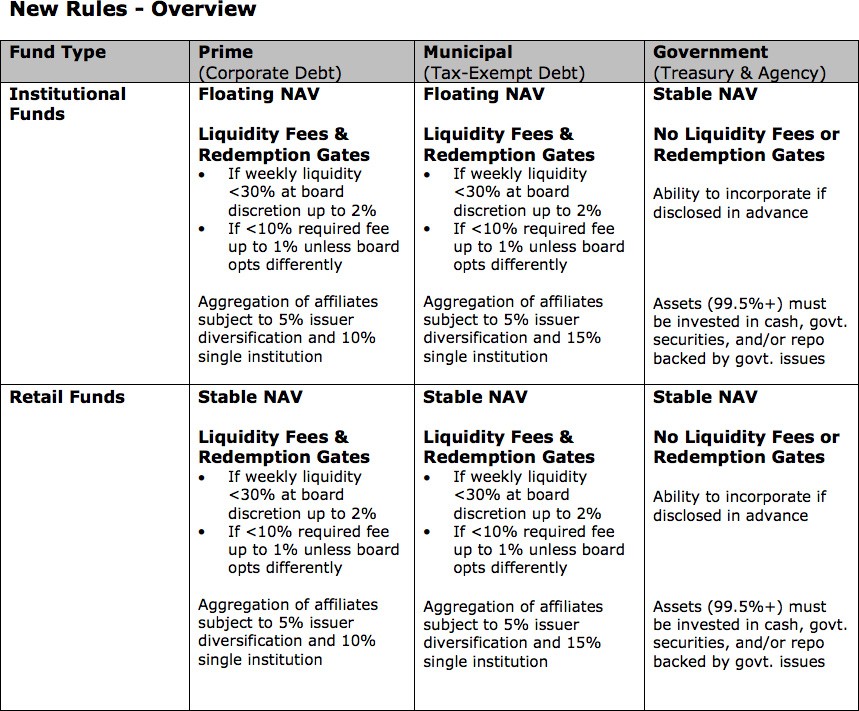Money Market Funds An Overview of Money Market Funds
Post on: 30 Март, 2015 No Comment

Money Market Funds Can Be a Relatively Safe Place To Park Short-Term Cash
(LifeWire) — Over the years, most investors have come to regard their money market funds as nearly the same as cash, and for good reason — most of them have performed like cash checking accounts and paid a bit more interest.
It’s important to remember two points, though:
- Money market funds are not cash and can suffer losses, although they rarely have.
- Unlike a bank deposit, money market funds are not insured by the federal government.
What is a Money Market Fund?
A money market fund is a mutual fund that invests in ultra-conservative bonds and other short-term debt instruments. The goal of all money market funds is to keep their share price at $1, while paying a bit of interest to their shareholders.
Securities and Exchange Commission rules prohibit money market funds from investing in any kind of debt security with a maturity date longer than 90 days. The types of debt that any given fund holds could range from totally secure short-term US Treasury Bills to slightly riskier corporate debt, including bonds, overnight paper and other more exotic instruments.
How Safe Are Money Market Funds?
Although more than $3 trillion was held in money market funds as of spring 2007, investor losses have been minimal. Between 1993 and 2008, only two money market funds in the US had fallen below $1 per share — known as breaking the buck — in part because most firms that issue money market funds are willing to defend them with their own capital if the funds suffer temporary losses.
For total security, investors can turn to similarly named money market accounts, which are bank-issued savings accounts insured up to $250,000 through 2009 by the Federal Deposit Insurance Corp. (The FDIC coverage is scheduled to drop back to $100,000 on Jan. 1, 2010, unless Congress acts to make the $250,000 limit permanent.) Because of the lower risk, money market accounts rarely pay interest rates as high as a money market fund.
Despite the occasional hiccups, money market funds can be the best place for most investors to park short-term cash, given their statistical safety and relatively higher returns.
Types of Money Market Funds
There are two main types of funds: taxable and tax-exempt.
- Taxable funds: These invest primarily in the private debts of corporations. The most conservative ones stick with blue-chip companies, but some venture into the riskier debts of lower-rated companies in pursuit of higher interest rates.
- Tax-exempt funds: These invest in debts issued by the federal government or those issued by a mix of federal, state and local governments. Depending on the investor’s state of residence, they may generate interest that’s partially or totally tax-exempt. Because of their lower risk, they generally offer lower interest rates than taxable funds.
LifeWire, a part of The New York Times Company, provides original and syndicated online lifestyle content. David Fisher is a freelance writer based in Bend, Ore. In addition to 25 years as a writer and editor, he has worked as a professional financial adviser.














